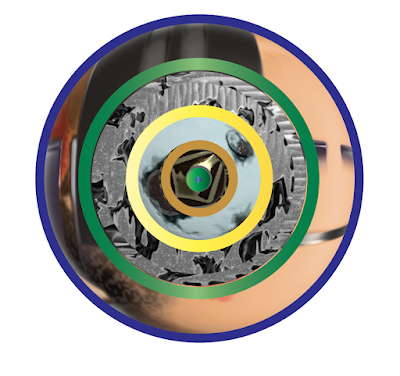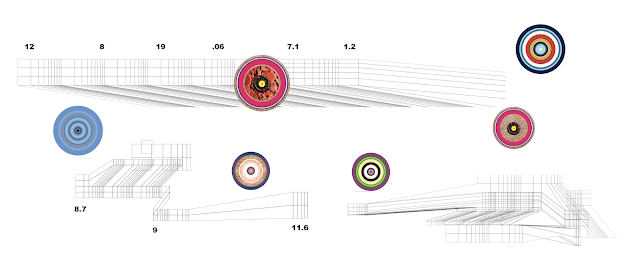Beginning late in 2022, I embarked on an ambitious project to reimagine music notation. I realize, for some of you who know me, this does not seem like anything new coming from me.
The Jubal Project" is a reckoning even for me. It is a journey to create a massive new musical lexicon for composers and performers alike. At the core of this lexicon is the circle; yes, the circle, not unlike the circles or ellipses found in traditional notation, however, there is a profound difference in how these new 'circles' are interpreted. And there will be many.
Why the circle? The circle is a universal symbol with extensive meaning. It represents the notions of totality, wholeness, original perfection, the Self, the infinite, eternity, timelessness, all cyclic movement, God ('God is a circle whose center is everywhere and whose circumference is nowhere' (Hermes Trismegistus)).
The impetus behind the creation of this new musical lexicon is the creation of a notation system (archetype) which is able to oscillate between indexical registrations, symbols of forces in flux, and sensory stimuli. It is intended to be a continuous, self-vibrating region of intensities whose development avoids any orientation toward a culmination point or an external end.
Features within this notational archetype yield aftereffects which empower the composer and performer that can be injected back into a pattern to generate multiple transformations and variants of sound creation. This offers a specific type of experience, one that is paradoxically immersive and partial, but always highly sensual.
As composers, our proficiency in crafting and exploiting form allows us to make, modify and deploy patterns of sound unlike those of previous generations. The selection or creation of a pattern of notation can go a long way towards establishing a domain of sensibility for the performer.
Why “The Jubal Project?” It is named for Jubal who was a Biblical figure in Genesis 4:21 of the Hebrew Bible and Old Testament. Mentioned only once, he is sometimes regarded by Christians, particularly by medieval commentators, as the 'inventor of music.'
Much more to come…









No comments:
Post a Comment